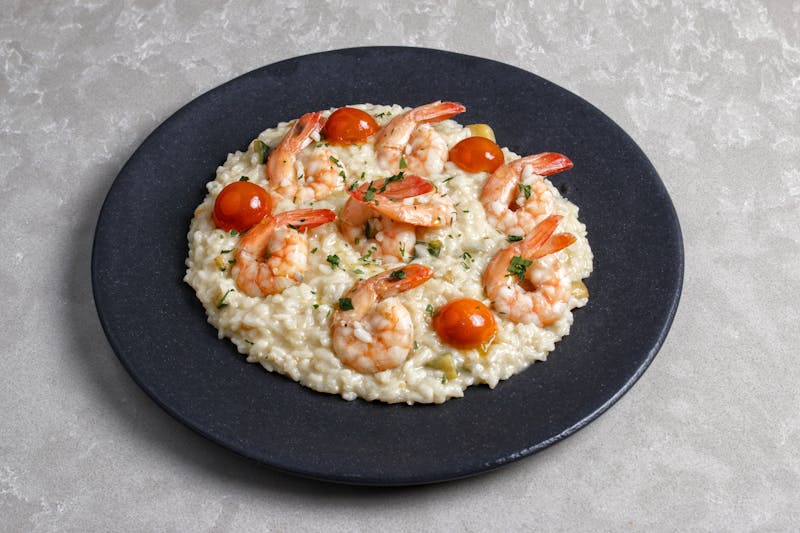The world of dieting has seen many trends, but one that consistently stands out in terms of effectiveness and long-term health benefits is the low-carb lifestyle. Whether you’re looking to lose weight, stabilize blood sugar, or simply improve overall health, reducing your carbohydrate intake can make a significant difference. In this article, we’ll explore the science behind low-carb diets, the health benefits they offer, and provide practical tips for incorporating this lifestyle into your daily routine.
The Science Behind Low-Carb Diets
Understanding how a low-carb diet works starts with how your body handles carbohydrates. When you consume carbs, your body breaks them down into glucose, which it uses for energy. However, when carb intake is significantly reduced, the body enters a state known as ketosis, where it begins to burn fat for fuel instead of glucose. This shift has a profound impact on both your metabolism and your health.
Reducing Insulin Levels
One of the main benefits of reducing carbs is a decrease in insulin levels. Insulin is a hormone produced by the pancreas that helps regulate blood sugar levels. When you consume carbs, your body produces more insulin to manage the sugar in your bloodstream. Lowering carb intake reduces the need for insulin, which helps with fat loss and reduces the risk of insulin resistance, a precursor to diabetes.
Enhancing Fat Burning
By cutting carbs, your body enters fat-burning mode. In the absence of glucose (from carbs), the body burns stored fat for energy, which leads to weight loss. This is one of the reasons why low-carb diets are often associated with quick and sustainable fat loss.
Stabilizing Blood Sugar
For those struggling with diabetes or pre-diabetes, a low-carb diet can have transformative effects. By reducing carbs, blood sugar levels are more easily stabilized, leading to fewer insulin spikes and better overall control. This can significantly improve energy levels and decrease the risk of developing more severe health complications.
Health Benefits of a Low-Carb Lifestyle
A low-carb lifestyle isn’t just about weight loss—there are many other health benefits that can enhance both physical and mental well-being.
Weight Loss and Fat Loss
The most common reason people turn to low-carb diets is to lose weight. When your body burns fat for energy instead of carbs, you naturally shed excess fat. Plus, a low-carb diet helps regulate hunger hormones, making it easier to reduce calorie intake without feeling deprived.
Improved Heart Health
A low-carb diet has been shown to help lower cholesterol and blood pressure, two key indicators of heart health. By focusing on healthy fats (like those found in avocados and olive oil), a low-carb diet can improve your lipid profile and reduce the risk of cardiovascular diseases.
Better Cognitive Function
Low-carb diets are not only good for your body, but they can also enhance mental clarity and focus. By stabilizing blood sugar levels, you avoid the energy crashes and brain fog that can come with carb-heavy diets. Many people report feeling more mentally sharp and focused on a low-carb regimen.
Reduced Inflammation
Chronic inflammation is linked to many health problems, from joint pain to heart disease. A low-carb lifestyle helps reduce inflammation by cutting out processed foods and sugars, both of which are known to trigger inflammatory responses in the body.
Common Low-Carb Diets
There are several variations of low-carb diets, each with its own focus and approach. Here are some of the most popular options.
The Ketogenic Diet
The ketogenic diet is one of the most well-known low-carb diets. It involves drastically reducing carbs and replacing them with fats, leading the body to enter a state of ketosis. This diet is particularly effective for weight loss, as it forces the body to burn fat for fuel. The ketogenic diet typically includes foods like fatty cuts of meat, avocados, cheese, and low-carb vegetables.
The Paleo Diet
The paleo diet focuses on eating whole foods that our ancestors would have had access to, such as lean meats, fish, fruits, vegetables, and nuts. It eliminates grains, legumes, and processed foods, making it a great low-carb option for those who prefer a more natural approach to eating.
The Atkins Diet
The Atkins diet is a low-carb diet that is structured in phases. The first phase is the most restrictive, where carbs are limited to a very small amount, and as the diet progresses, carbs are gradually reintroduced. This diet has been popular for decades and is known for its effectiveness in both weight loss and fat loss.
The South Beach Diet
The South Beach Diet is a balanced, low-carb diet that focuses on eating healthy fats, lean proteins, and vegetables while limiting processed foods and refined carbs. It’s a more moderate approach compared to the ketogenic or Atkins diets, making it easier for people to stick with long-term.
Essential Foods for a Low-Carb Diet
When adopting a low-carb lifestyle, it’s important to know which foods to include in your diet and which to avoid.
Protein-Rich Foods
Focus on lean proteins such as chicken, turkey, fish, eggs, and tofu. These are excellent sources of protein without the carbs that come with many other protein-rich foods like beans and lentils.
Healthy Fats
In a low-carb diet, fats become your primary energy source. Incorporate healthy fats such as avocados, olive oil, nuts, and fatty fish (like salmon). These fats not only provide energy but also support heart health and help keep you feeling full.
Low-Carb Vegetables
Most vegetables are low in carbs and high in fiber, making them an excellent addition to your diet. Opt for leafy greens like spinach, kale, and arugula, as well as cruciferous vegetables like cauliflower and broccoli. These vegetables are nutrient-dense and low in carbohydrates.
Healthy Alternatives to Carbs
When you’re craving carbs, look for alternatives that are lower in sugar and carbs. Almond flour and coconut flour are great substitutes for traditional flours in baking, and spiralized zucchini or shirataki noodles can replace pasta.
Low-Carb Meal Ideas and Recipes
Here are some delicious, low-carb meal ideas to get you started:
Zucchini Noodles with Pesto
Zucchini noodles are a great pasta alternative. Pair them with homemade pesto made from basil, garlic, pine nuts, and olive oil for a fresh, satisfying meal.
Grilled Salmon with Avocado Salsa
Salmon is high in healthy fats and protein, making it the perfect centerpiece for a low-carb meal. Top it with an avocado salsa for extra flavor and healthy fats.
Cauliflower Fried Rice
Cauliflower rice is a great substitute for traditional rice. Stir-fry it with vegetables, chicken, and a bit of soy sauce for a tasty, low-carb side dish.
Chicken Salad Lettuce Wraps
Instead of bread, use lettuce leaves to wrap up your chicken salad for a light, low-carb lunch. Add some avocado for creaminess and healthy fats.
Overcoming Challenges of a Low-Carb Diet
Transitioning to a low-carb lifestyle can be challenging, but with the right strategies, you can stick to it and thrive.
Social Situations and Eating Out
Dining out or attending social events can present challenges, but many restaurants now offer low-carb options. Don’t be afraid to ask for modifications, such as substituting vegetables for potatoes or requesting dressing on the side.
Managing Cravings for Carbs
Carb cravings can be intense, but you can manage them by keeping healthy, low-carb snacks on hand. Almonds, cheese, and Greek yogurt can help satisfy your hunger without derailing your diet.
Staying Consistent Long-Term
Consistency is key to any successful diet. Build healthy habits, track your progress, and don’t be afraid to seek support from friends, family, or a nutritionist to stay on track.
Conclusion
A low-carb lifestyle offers numerous health benefits, from weight loss to improved heart health and better cognitive function. By focusing on high-quality protein, healthy fats, and low-carb vegetables, you can transform your health and enjoy a vibrant, energized life. Make the change today and feel the difference tomorrow.
Frequently Asked Questions (FAQs)
- Is a low-carb diet safe for everyone? While low-carb diets are generally safe for most people, it’s always best to consult with a healthcare provider before making any significant dietary changes, especially if you have existing health conditions.
- How much weight can I expect to lose on a low-carb diet? Weight loss results vary, but many people experience significant weight loss within the first few weeks of starting a low-carb diet due to water weight loss and fat burning.
- Can I still eat fruits on a low-carb diet? Yes, but focus on low-sugar fruits like berries, avocado, and watermelon. High-sugar fruits like bananas and grapes should be limited.
- What’s the best type of low-carb diet for beginners? The South Beach Diet or a moderate approach to the ketogenic diet is often recommended for beginners as it allows for gradual adaptation to a lower-carb lifestyle.
- Can I drink alcohol on a low-carb diet? Yes, but choose low-carb options like wine, whiskey, or vodka. Avoid sugary cocktails or beer, which are higher in carbs.
4o


